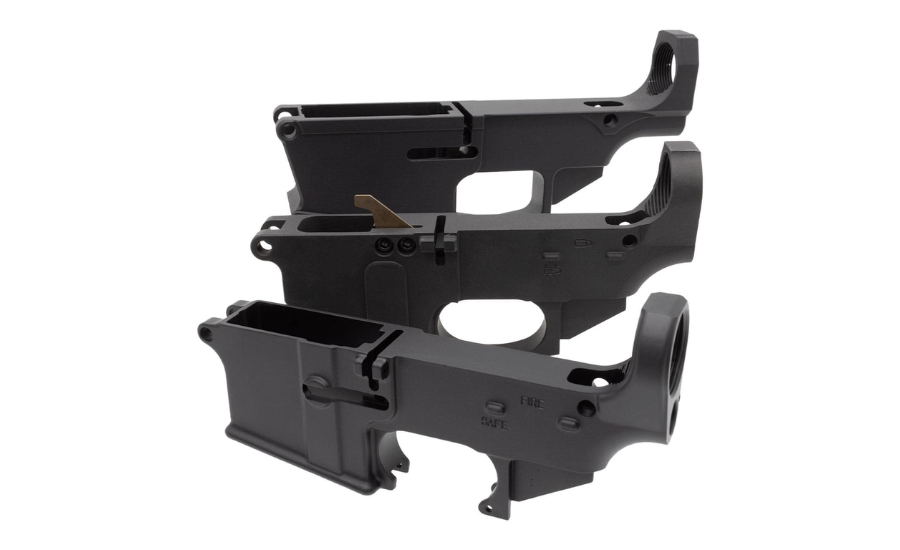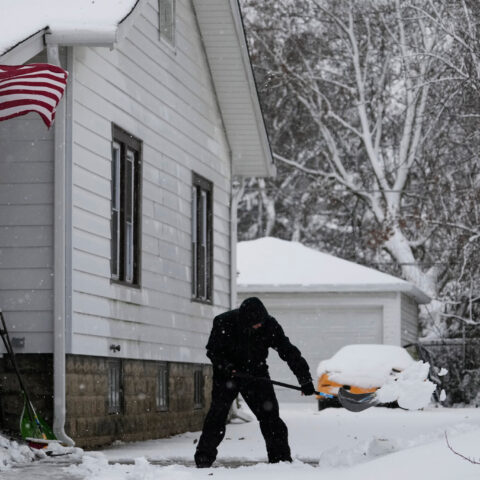The idea of a lower that has 80 percent of its capacity has been popular with avid shooters and other enthusiasts over the last few years. A lower with 80% capacity is an unfinished firearm receiver that requires further work to function as a lower receiver. The reason this happens is that, under the laws that govern the United States, they are not considered firearms. This permits people to build the firearms they want at home. But, the type of activity has legal ramifications that buyers and potential purchasers should take note of. This article focuses on how the laws apply to the lower limit of less than 80 with a focus on federal law, the regulations of the states, and the obligations of those who choose to take part in this kind of business.
Which one is less than 80?
Lower receivers that has an at 80% is a shape of receiver for firearms that isn’t completely completed, but it requires massive machining for it to grow to be operational. Most typically 80% lower receivers are made to be used with AR-15 rifles, but they also can be used for different firearms models. The word “80 percentage” is a colloquial time period which means that that the rifle is 100% entire, but it is no longer an genuine degree. A further 20% of labor should be finished by means of the purchaser typically, which includes drilling, milling, as and different machining approaches.
Federal Law and 80 percent lowers
In accordance with the Gun Control Act of 1968 the Bureau of Alcohol Tobacco Firearms and Explosives regulates firearms and firearm components. In the phrases of the ATF the ATF complete receiver that has no longer accomplished the reputation of purposeful isn’t considered an real gun. So, the lowers of eighty% are offered with out a demand to get a Federal Firearms License (FFL) and are not required to satisfy the same specifications as in reality-completed firearms.
Once the upper 80% of the HTML0 has been converted to an operational state, it is considered to qualify considered a firearm, and legally required to conform to federal laws that are in effect. This includes restrictions on who is permitted to possess firearms as well as the requirement for serialization and also laws governing transfer of firearms.
Serialization Requirements
The most crucial thing to be aware of is the need to serialize. According to the laws that governs the United States, it is legal to construct an item to be used for personal purposes, but without the requirement for the serial number. If the firearm is later transferred, sold or destroyed in any other manner, the firearm needs to be serialized and registered in accordance with ATF rules. Infractions to these regulations could result in severe legal penalties.
State Laws and Regulations
The federal legal system is the main legal framework state laws could differ in a significant way and may impose restrictions or demands on 80% lower that exceed . It is important for all to know the laws specific to their state prior to purchasing or cutting the lower.
California
California is the home of one of the most stringent firearm laws throughout the United States, and this is a reduction of 80. In California the person who making an firearm must file an application to the California Department of Justice to receive a unique serial number before making an instrument. The gun is required to have been registered as well as serialized by California’s Department of Justice. Furthermore, California has an assault weapon ban that applies to certain kinds of rifles constructed with the 80% lower.
New York
New York regulation prohibits the possession of ghost weapons which can be firearms that don’t have serial numbers. This correctly bans the manufacture and the usage of non-serialized lowers for eighty. Each firearm whole is required to be registred with the nation. Transfers of firearms ought to be handled via a licensed dealer.
Other States
Many other states have varying levels of regulation regarding lower rates that are less than 80. Certain states such as Texas as well as Florida have rules that are comparatively loose in comparison to other states such as New Jersey and Connecticut, have more stringent rules. It is important to be aware of and be aware of the rules and regulations of your state prior to committing any activities that are linked to the 80percent reductions.
Guidelines and Best Practices
Because of the complicated legal framework and the complexities of the legal system, it’s vital for people who purchase and make use of the lowers at 80% to follow the most effective methods to ensure they are in conformity with the laws currently in the force.
and Education. and Education.
When you are considering purchasing a gun with a price that’s 80% less costly be sure to study the federal, state as well as local law. Learn about all the terms and regulations that are legal and consequences associated with the production process and ownership in firearms. In addition it is important to be informed about the specifics of machining and finishing 80percent less, to make sure the job is completed safely and in compliance with.
Proper Serialization
Although it’s not a requirement under federal laws, it’s suggested to register your gun. This will enable you to avoid legal problems should the firearm transfers, or you’re required to provide proof by the police. Serialization can be achieved through a variety of methods, including printing or engraving. The serialization should include your complete name, address the state, city and address along with a distinct serial number.
Secure Storage
Make sure your firearms are secured to prevent unauthorized access theft or abuse. This means keeping a safe in your firearm, and also taking other security measures for example, trigger locks or cables locks. Secure storage isn’t just a requirement by law but also an obligation morally based to protect the safety of others.
Documentation
Take meticulous notes of the purchase, the machining procedure, and any communication with law enforcement or regulatory authorities. These records are crucial in proving that you have complied with the law, and protect yourself from legal investigations and/or dispute.
Common Conceptions
It is possible to find a number of misconceptions regarding the lowers of 80% in relation to their lawful. It is important to understand the rules to ensure that you do not violate laws.
The majority of lowers aren’t regulated
Although 80% of lowers aren’t categorized as guns under federal law, the process of creating and owning them is subject to strict regulations. It’s not recommended to assume that buying an 80 percent lower means that you are able to construct and use a firearm with no legal consequences.
-Serialization Is Unnecessary
Many people believe that it is required in the case of a firearm being sold or transferred. It is nevertheless a good method to register your firearm even if you plan to keep it for private usage. This will assist you in avoiding legal problems and demonstrate your commitment to responsible firearm ownership.
State Laws Aren’t Relevant
Some people believe that the federal law only applies to lower than eighty. In fact the state and local laws can impose significant limitations as well as restrictions. In the absence of these laws, you could suffer grave legal repercussions.
Legal Consequences of Not Conforming
Infractions of the lawful requirements for lowers of 80% or more could result in harsh penalties, such as imprisonment and fines, as well as permanent denial of the right to possess firearms. It is essential to be aware of all legal implications which may be triggered and ensure that you’re in conformity with the laws.
Federal Penalties
In federal law, production or possession of firearms in violation of strict compliance can result in the issuance of crook convictions. This could be a motive for enormous penalties and jail sentences up to ten-years. In addition the people who are convicted of federal firearm offenses can be barred from owning firearms for the rest in their lives.
State Penalties
The penalties enforced by states for violations can be distinct. States with strict laws on firearms, the penalties can be similar in manner as federal penalties for violation. For instance in California the possession or production of a firearm without a license could lead to severe penalties, including felony charges, as well as jail time.
Conclusion
A purchase or use of a lower percent of the components to make guns is a popular option for many firearm enthusiasts. But, it is essential that you navigate through the lawful system with a keen eye and constant vigilance. Being aware of state, federal and local laws is crucial to ensure you’re following the law and avoid serious legal consequences. Through education and adhering to the most effective methods, and keeping up to date with legal developments, you can be competent to legally and safely make your own gun with a smaller 80.







